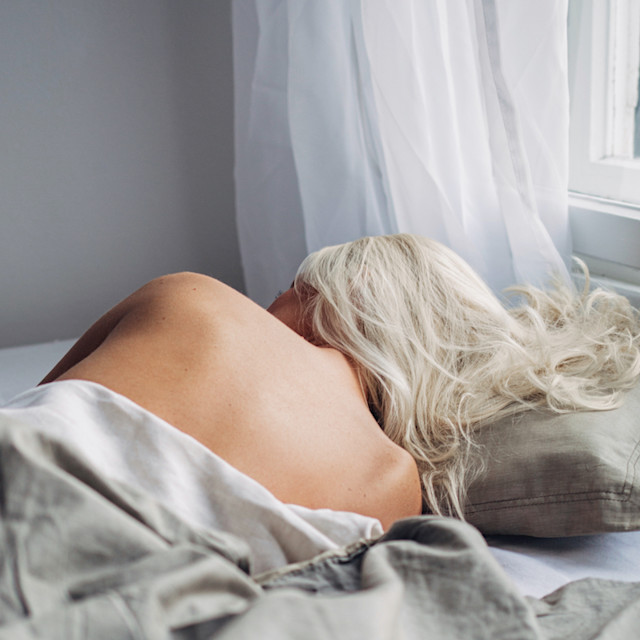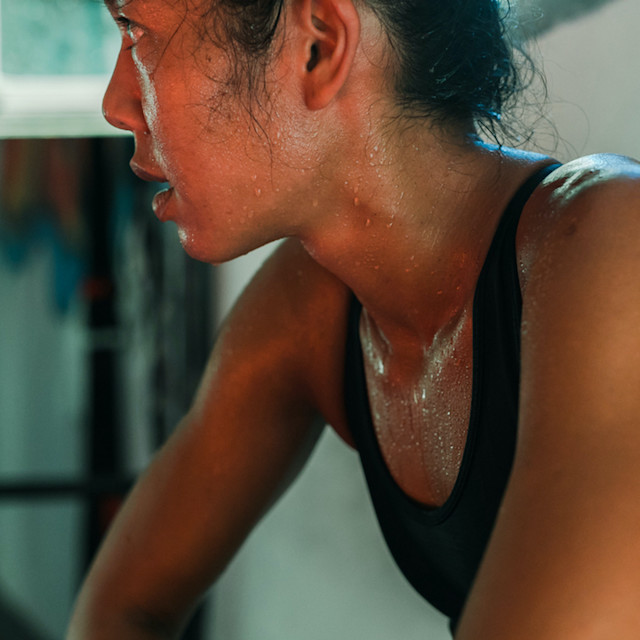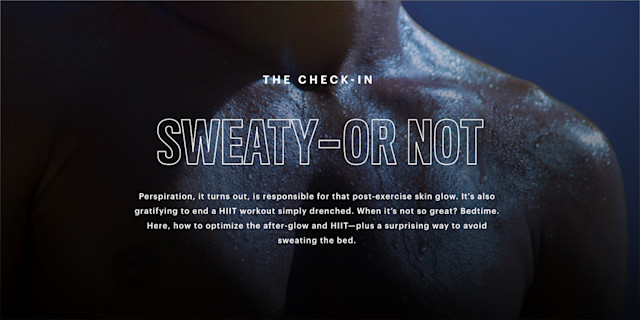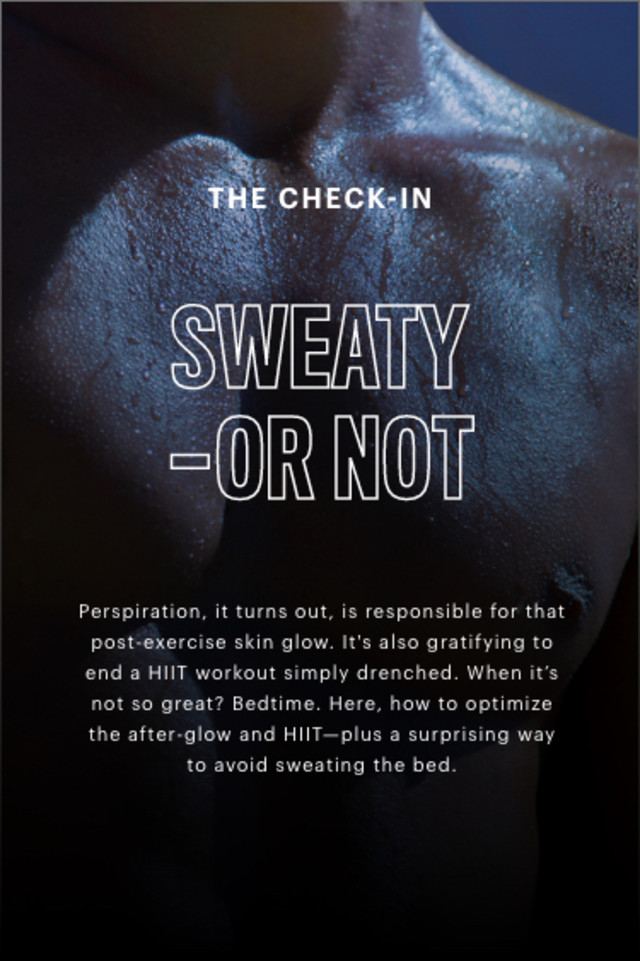
WHY DO YOU SWEAT THE BED?
Body temperature naturally drops during sleep; however, many people perspire at night, and sometimes excessively. Experts say it could be due to an overheated bedroom (set your thermostat to an optimal 68 degrees), eating too late at night and/or spicy foods, or certain hormonal conditions.
Your workout time could also need tweaking. After a sweat session, it can sometimes take two to four hours for your body temperature to return to normal, explains Raymond Gottschalk, M.D., an internist and sleep disorder specialist at The Sleep Disorders Clinic in Hamilton, Ontario. If you go to bed in that window of time, it could be the reason for your sweaty sleep. The best time to exercise (vis-à-vis sweating the bed) is five or six hours before bedtime, he says, because those extra hours mean you’re going to sleep on the cooling curve of your body’s core temperature. Note that regular exercise improves sleep as long as you leave a sufficient buffer between your workout and your bedtime.“

OPTIMIZE SWEAT’S SKIN BENEFITS.
That glow you notice after exercise can be attributed to heat capillaries that dilate when you sweat, says Kavita Mariwalla, MD, a dermatologist based in West Islip, New York. Sweating also activates the production of natural oils that can soften and moisturize the skin.
But even though sweat is sterile, it isn’t meant to be left on the skin for prolonged periods of time. “Mixed with dirt, makeup, and pollution, it can accumulate and clog pores, triggering or worsening acne and causing inflamed hair follicles,” says Melissa K. Levin, MD, a New York City-based dermatologist. To prevent this, give your face a rinse before a workout so you can sweat with a clean slate—and wash again right afterwards with cold water (which can help close pores) if you can deal.

